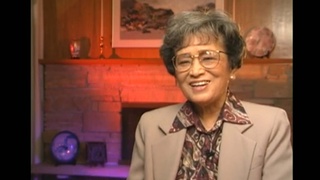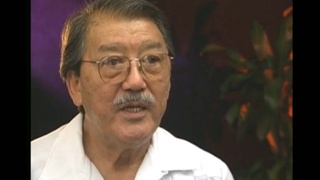Interviews
Evolving History
I guess, to me, one of the interesting things that came about from the redress process was that people were coming out of the closets, they're talking about these issues, and we're finally able to talk coherently to individuals. And in some cases still the fragmentation of society is still there. But nonetheless, we're able to talk and we're able relate to these events that took place. And so maybe the redress thing has a lot of secondary effects. Maybe it'll have some beneficial effects for the Sansei. Maybe they'll recognize some of these things that went on and why their parents feel the way they do about certain social events or social contacts, and organizations and things of this nature. So to me, there's a whole evolution of Japanese American history that has taken place in the last maybe thirty years, or somewhere in that realm.
Date: October 28, 1999
Location: Washington, US
Interviewer: Tom Ikeda
Contributed by: Denshō: The Japanese American Legacy Project.






